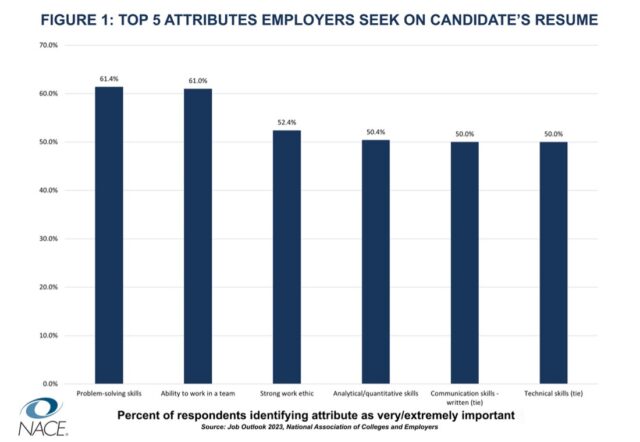By Olivia Eiken | Staff Writer
It’s the fall of your junior year, and you’re anxiously sitting in a Zoom waiting room, anticipating the interviewer for the company you want to intern at to join the call. When the meeting ends and the overthinking commences, you begin to worry that you spent too much time stressing about maintaining your GPA instead of applying what you know beyond the walls of the classroom.
As a junior in the College of Arts and Sciences and the department of journalism, one of the greatest — and, in my opinion, most valuable — skills I continue to hone through my coursework is how to market myself to future employers and colleagues.
To do this successfully, there must be an emphasis on gaining as much leadership and work experience as you can in as many fields as you can. Your GPA will get your resume through the applicant tracking system software, but it will lead to little-to-no growth in your network if you don’t have proof of applying the “hard skills” the company is looking for.
This is not to say that your GPA has no impact on where you land your first post-grad job. The measurement gives a brief indication of what someone’s work ethic and attention to detail are like. A high GPA shows a commitment to academic excellence, even if maintaining it may have caused a handful of mental breakdowns and forced you to skip out on social time with friends. In large Fortune 500 companies, a good-standing GPA has also become increasingly meaningful in entry-level positions, as employers across many fields have used it to screen and narrow down the overflowing applicant pool.
Unfortunately, students are under immense pressure to excel academically at university due to the competitiveness of the current job market. Oftentimes, this means they choose to isolate themselves in Moody Memorial Library for hours on end as opposed to working to make their resume stand out in a different way.
In 2022, the National Association of Colleges and Employers Job Outlook for 2023 survey found that more than 60% of employers are looking for applicants to have real-world experience showcasing strong problem-solving skills and the ability to work in a team setting.
The classroom simulation of these sought-after hard skills will only get you so far. Both work experience and leadership positions demonstrate that you have applied your education to real-world settings, effectively communicating to employers that you are qualified and capable for a position.
Additionally, taking on opportunities outside of the classroom in a diverse range of disciplines gives you the chance to discover what you truly do and don’t like. Taking the opportunity, executing it to your best ability, giving it the proper attention and ultimately coming out on the other side unsatisfied and unfulfilled with that specific field is just as valuable as taking on a new role and loving every minute of it. Sticking it out even when you maybe didn’t want to tells employers that they can rely on you to wholeheartedly fulfill the responsibilities of a role and persevere even when you may want to quit.
Despite the fear we constantly see in media headlines, companies still want to hire humans with charismatic and well-rounded personalities. The best way for employers to gauge the dependability, uniqueness and drive of your character is to provide evidence through lived and work experiences. You’re selling yourself short by staying confined to the comfortability and priority of your Canvas dashboard and GPA.






